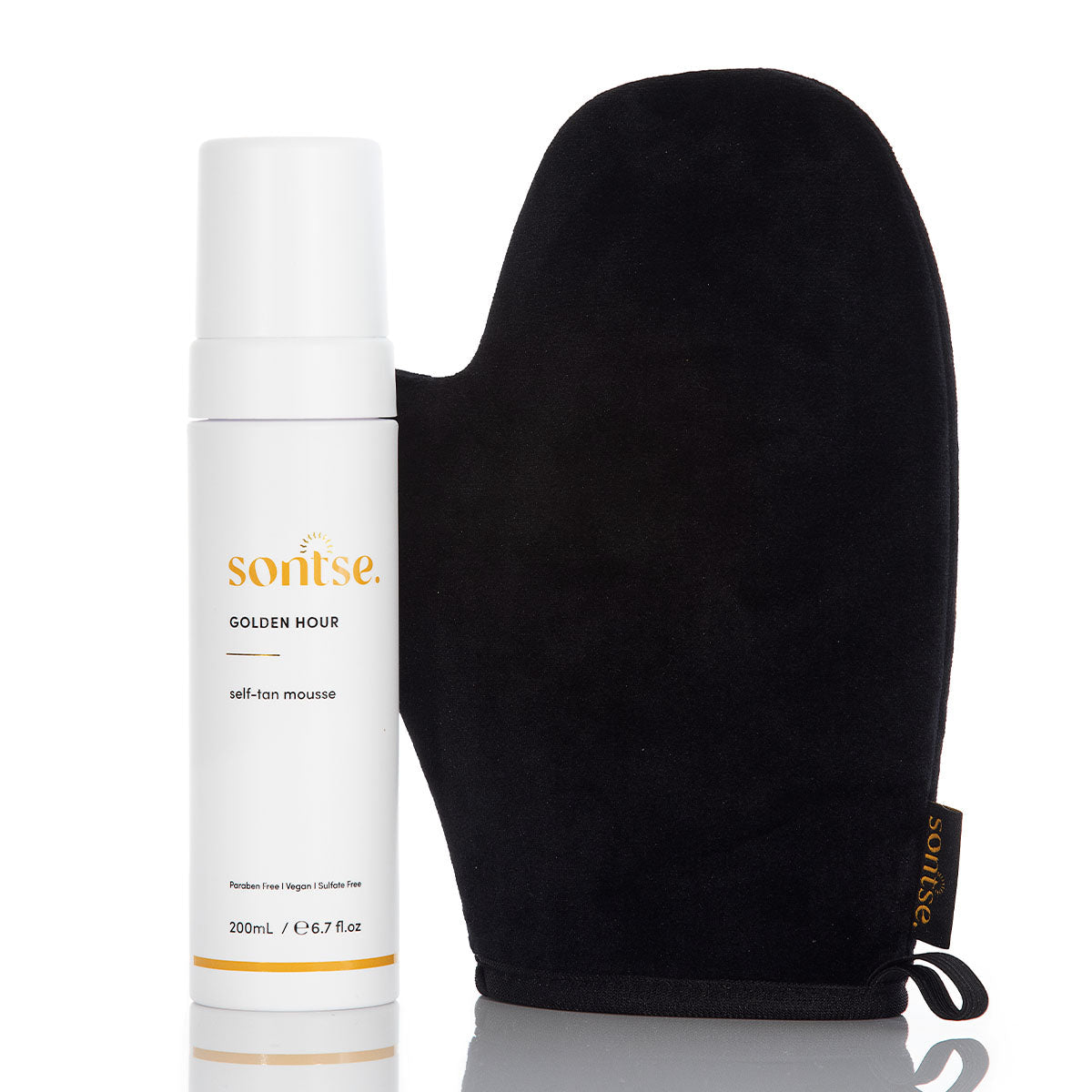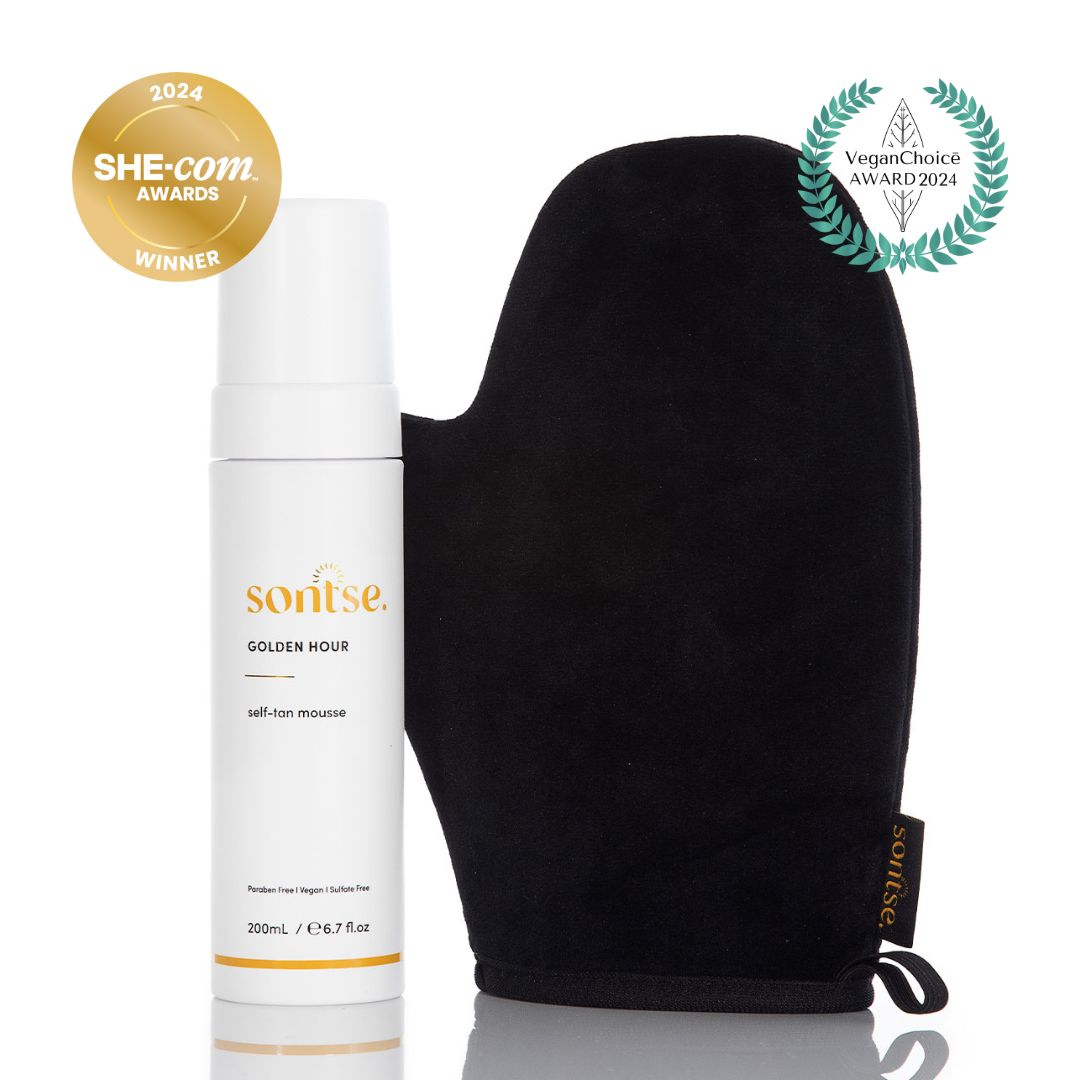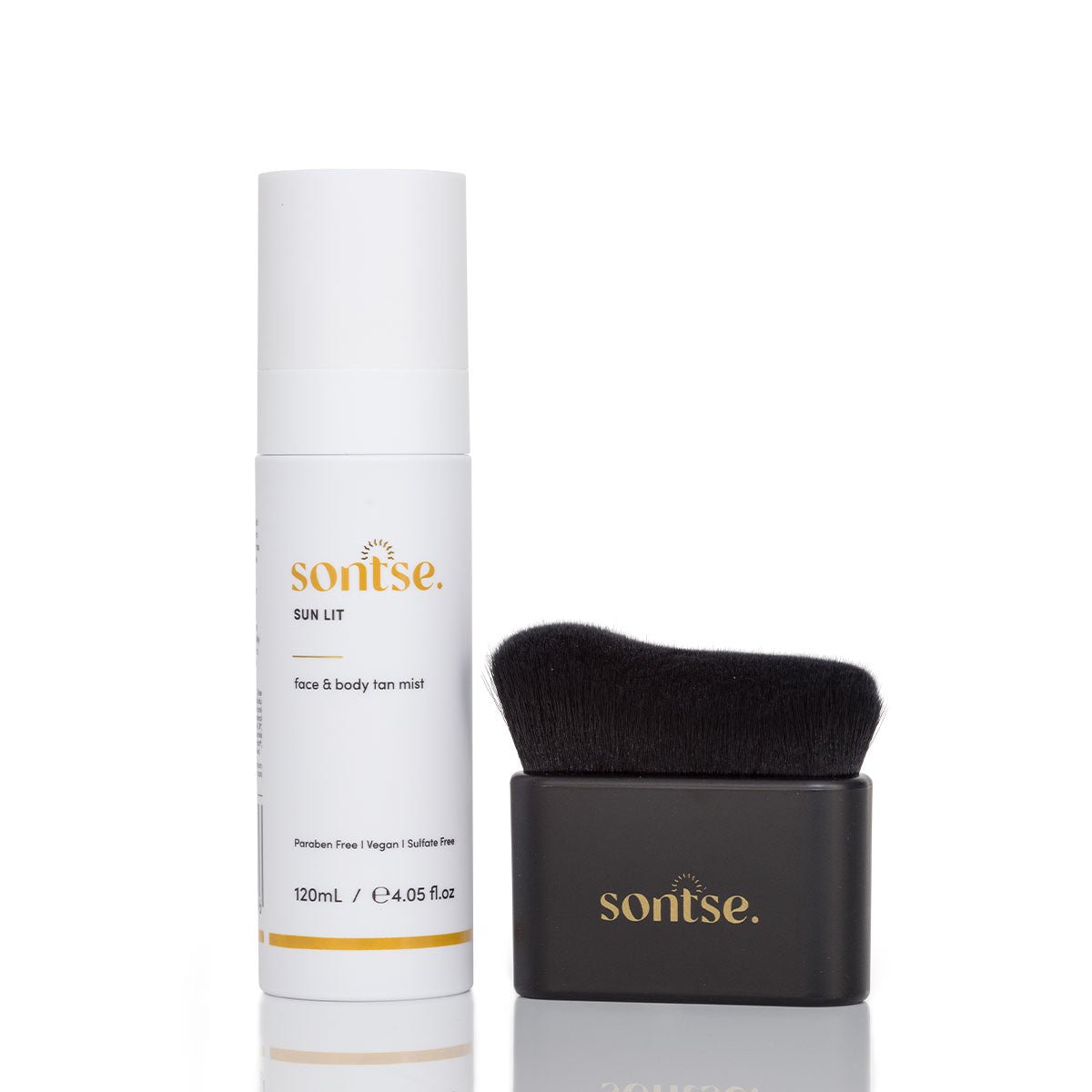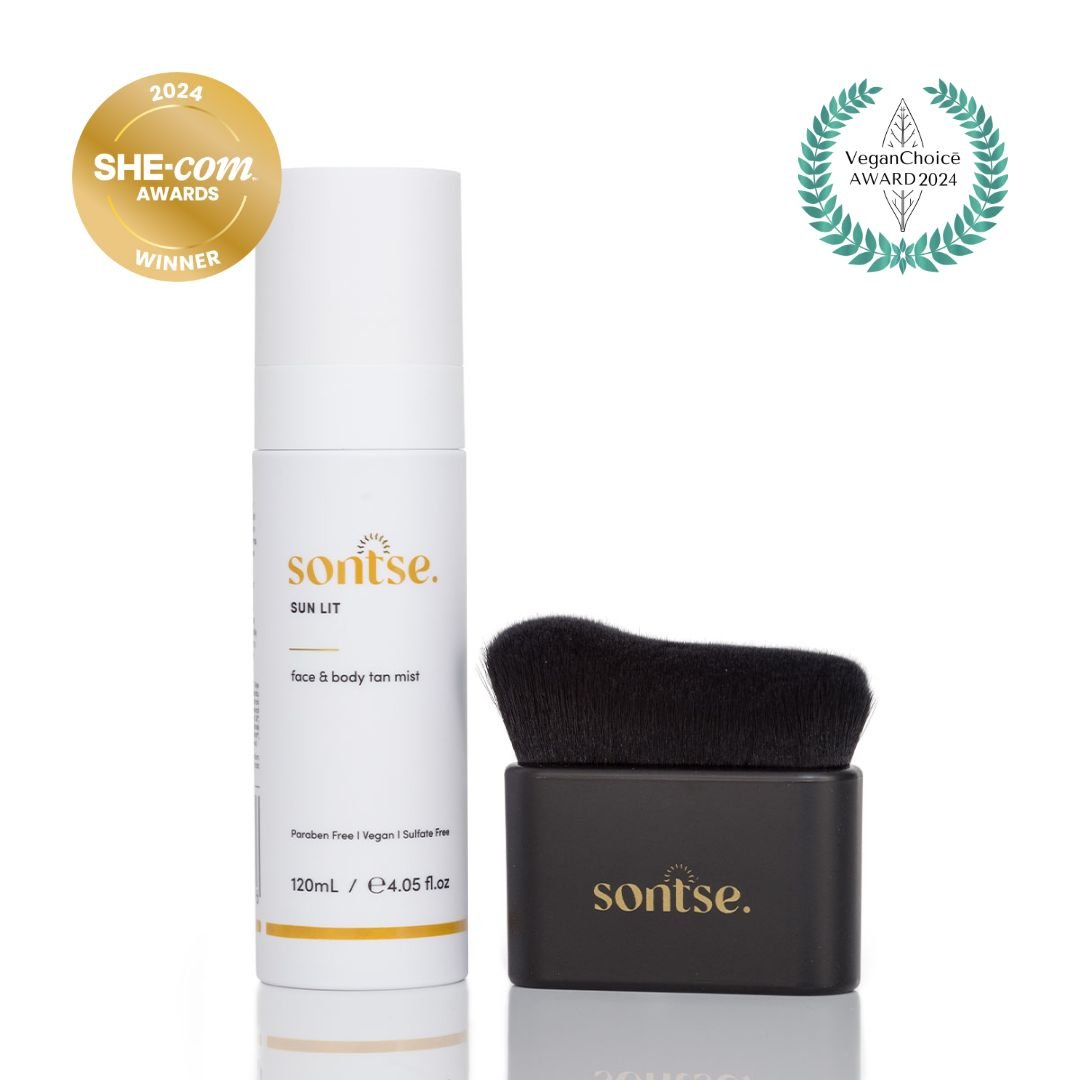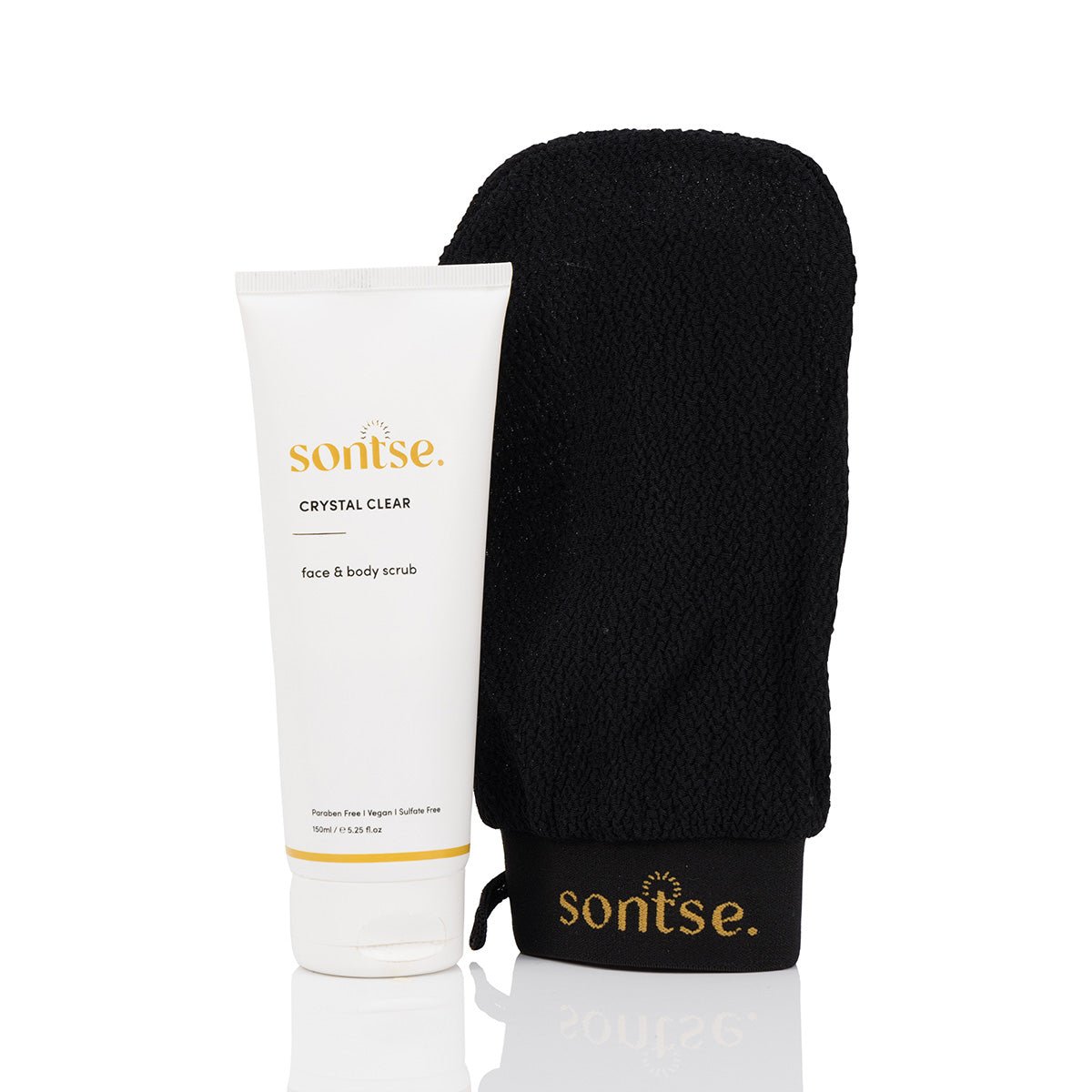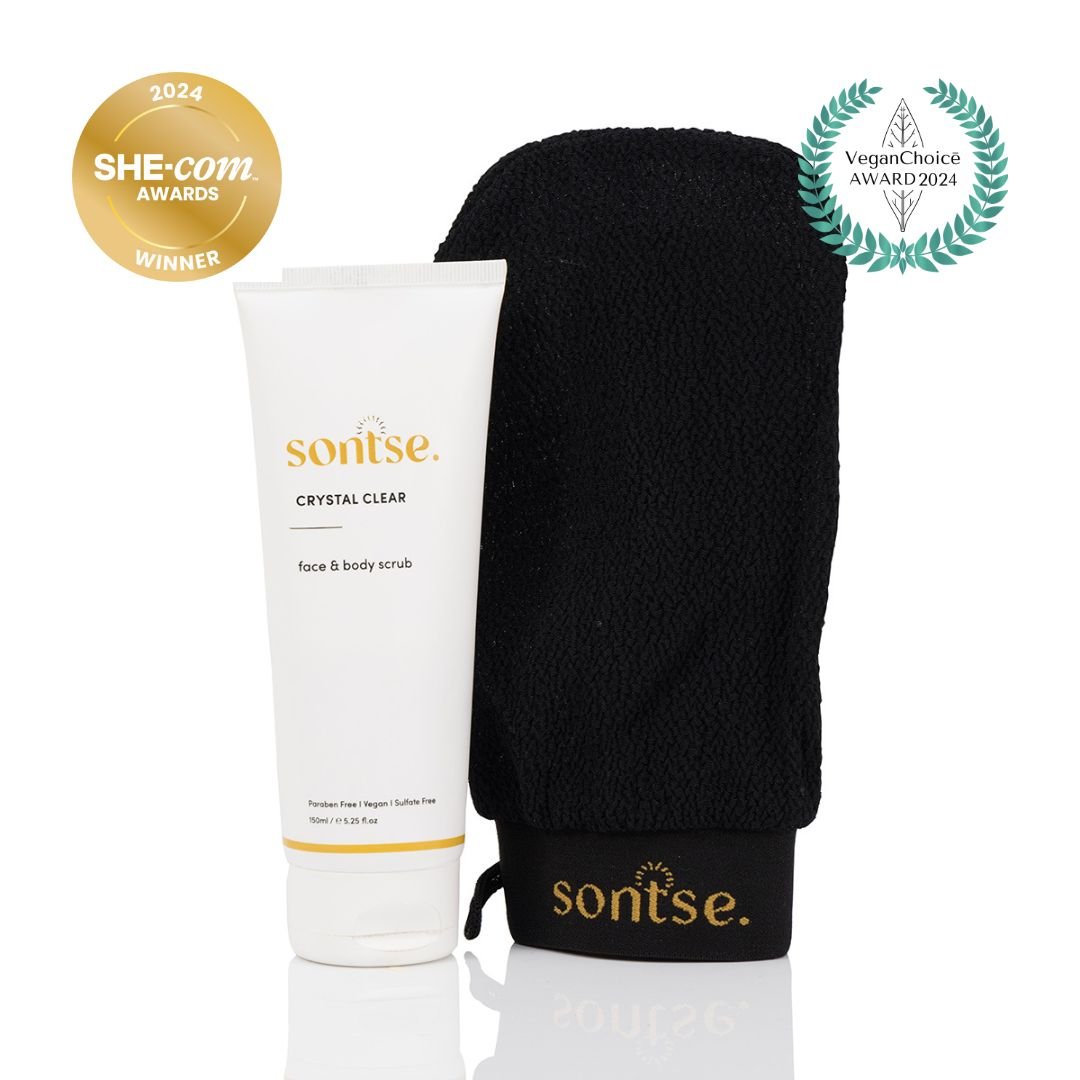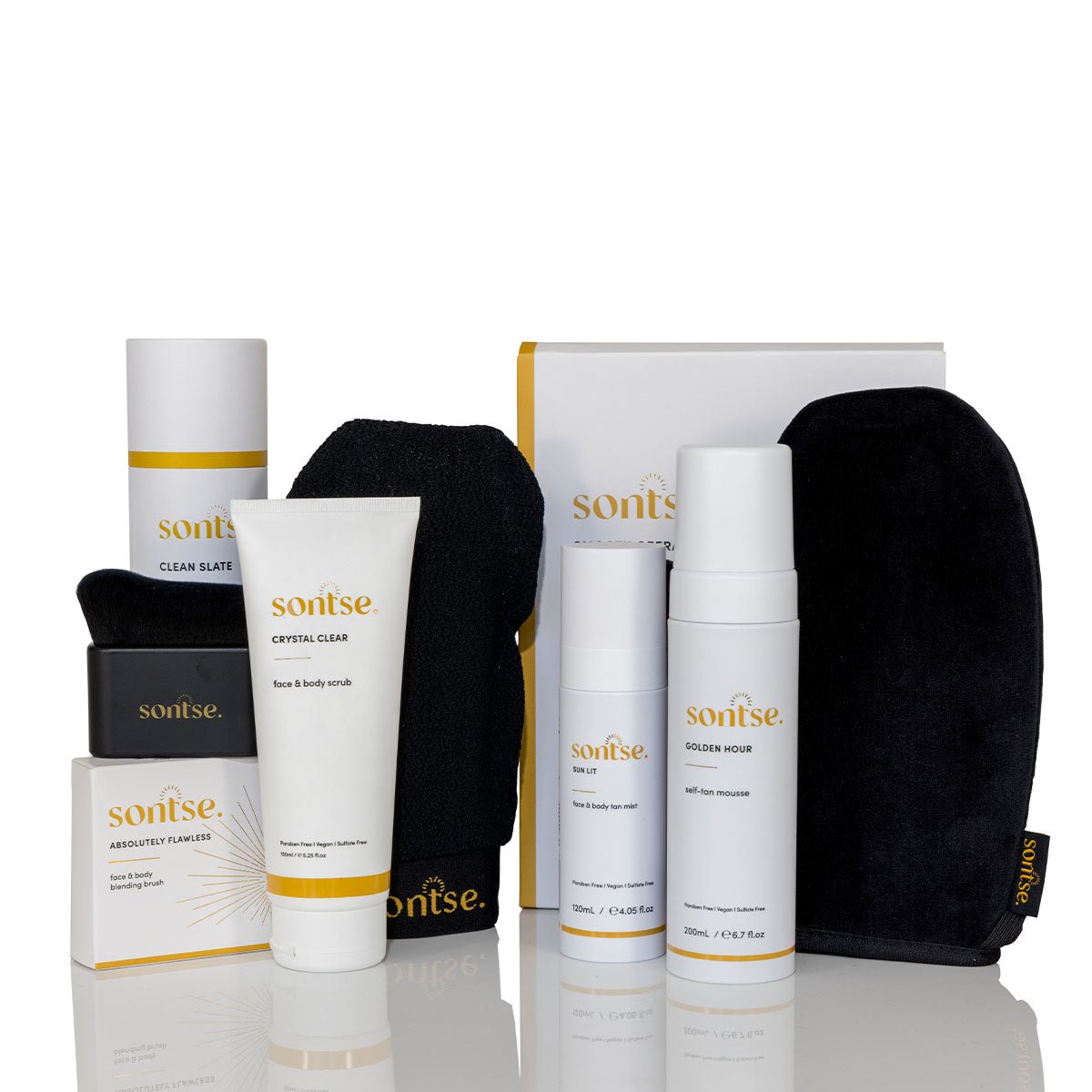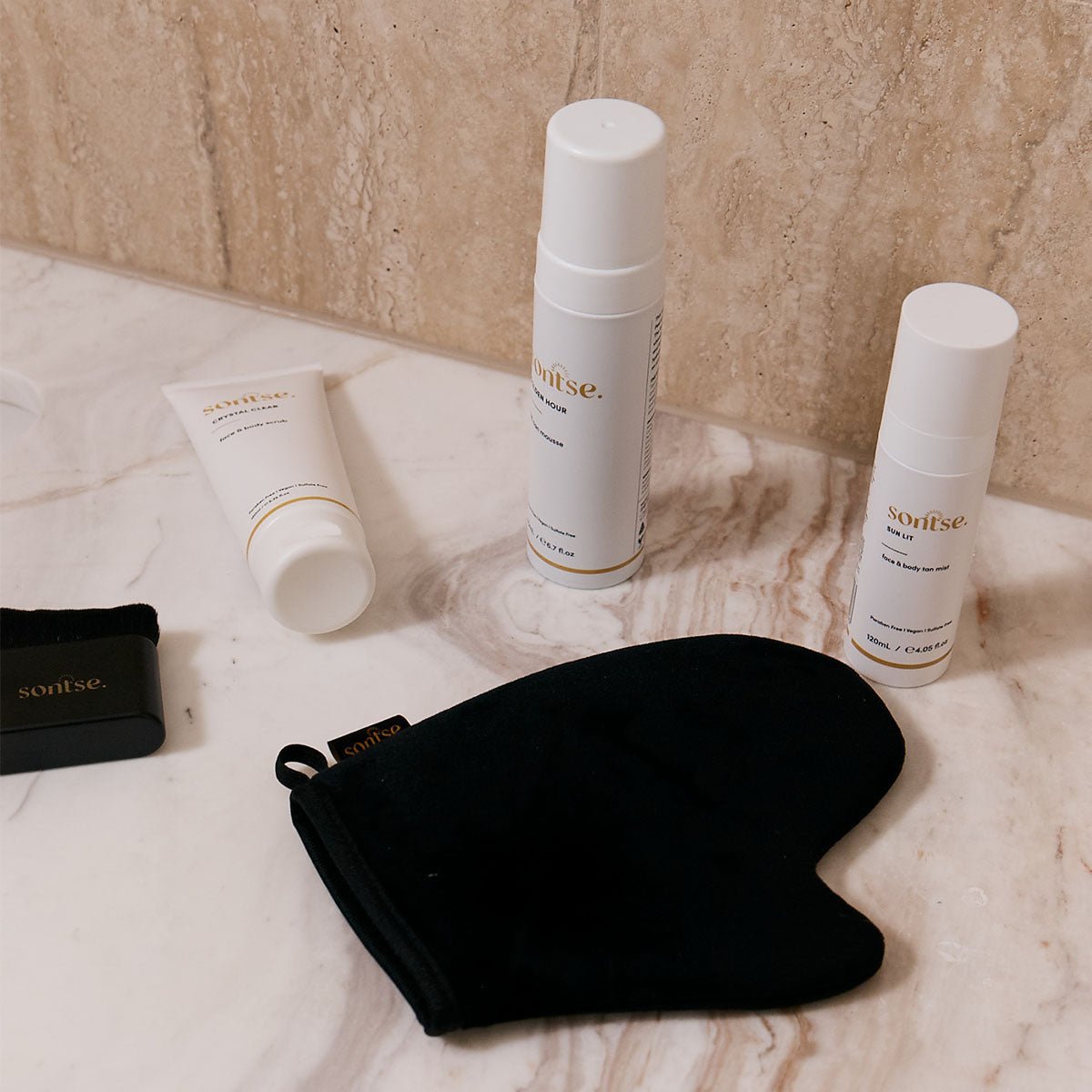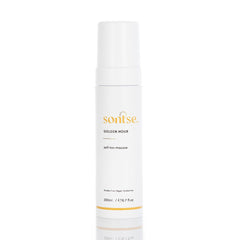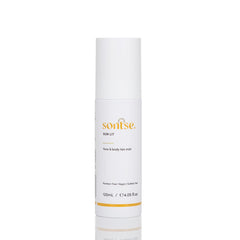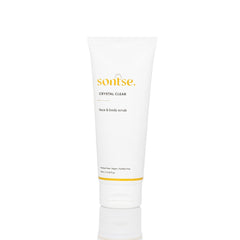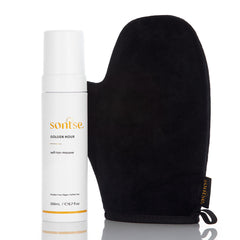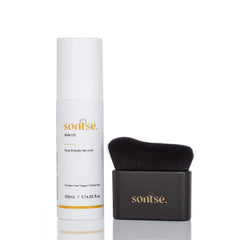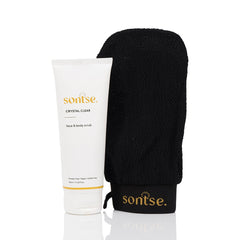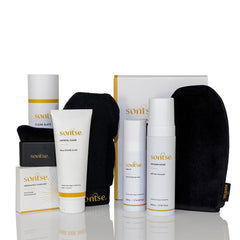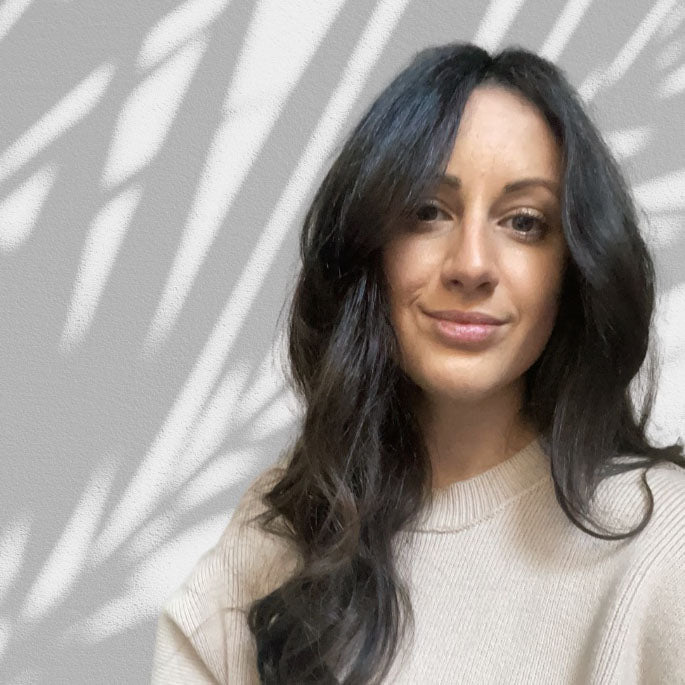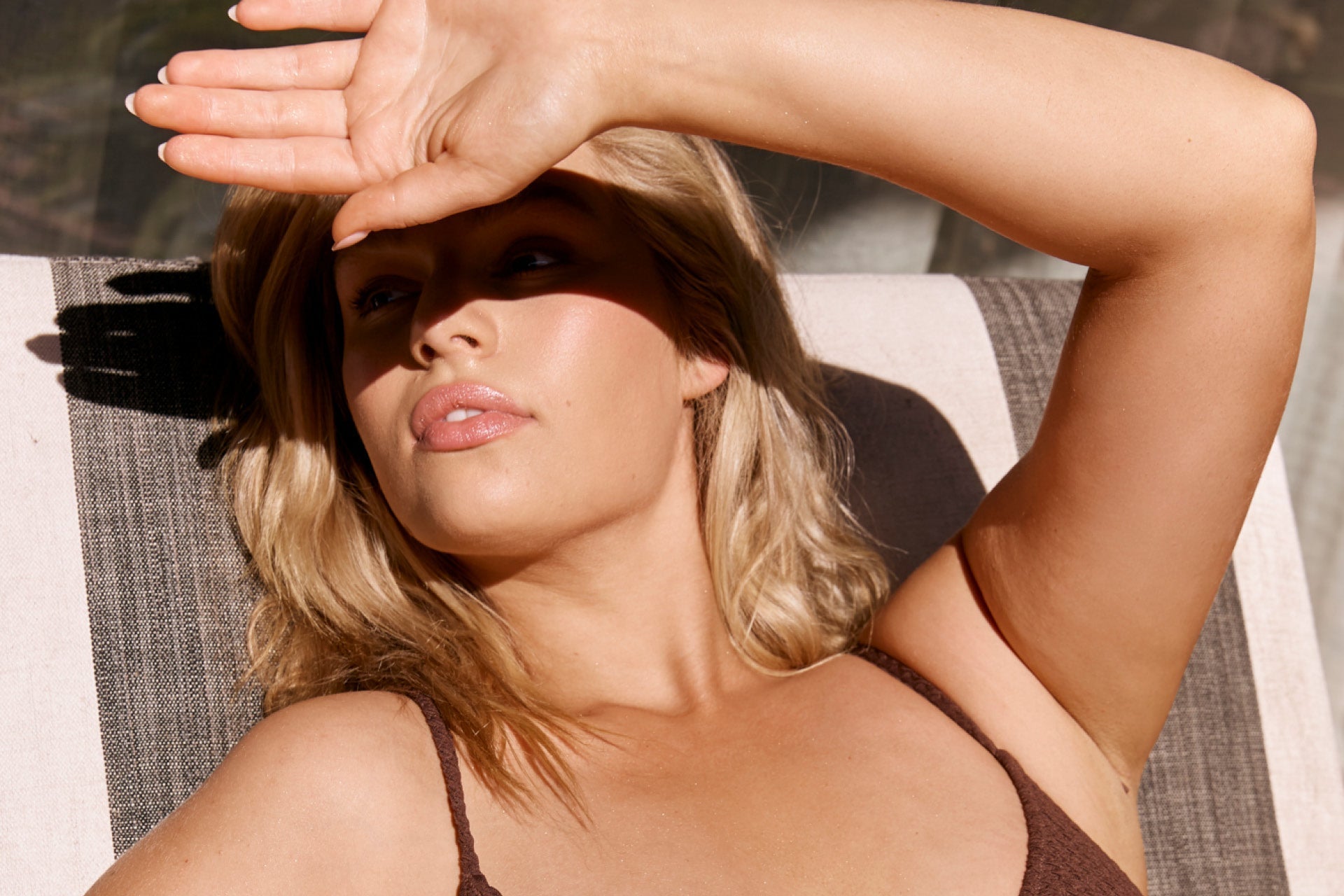Maybe you’ve heard the statistics, or perhaps you have been up close and personal with the damaging effects of sun-tanning in such a way that has left you questioning, ‘Is sun tanning bad for you?’
No matter what poses the question in your mind, we can all, as a community, agree that now is the time to make real, conscious decisions that help rewrite the future of beauty standards that no longer serve us. It’s not that our summertime golden, (often coconut-oil-lathered) mothers in the 70s and 80s got it wrong… it’s that they were pursuing to honour their bodies and beauty, how they knew best, with the information that they had.
Today, we know more about the effects of sun-tanning. We also look at the same beautiful, skin-nourishing ingredients like coconut oil, alongside the facts and the science, illuminating a better way to use earth’s extracts on our bodies to hydrate, moisturise and glow - sans the sun damage.
In the following article, we cover everything from ‘Is sun tanning bad for you?’ to ‘the dangers of tanning beds’ and even exploring the pros and cons of healthier options, including spray tans, creams and oils.
Ensuring our community have access to the facts to make more informed decisions around skin health is what we’re all about. May this enlighten you in your sunless tanning journey.
How does sun tanning work?
When questioning ‘Is tanning really bad for you?’ we must first understand how sun tanning works, how UV rays interact with the skin and the role of melanin and what it’s doing to your skin to create that tone.
According to Hawryluk et al. (2014), here's what actually happens when your skin tans:
UV radiation hits your skin and triggers DNA damage in your skin cells. Your body recognises this damage and responds by producing melanin (that's the pigment that creates the darker colour). But here's the thing: this process is essentially your skin's distress signal.
The research shows that both UVA rays (the ones that penetrate deeper) and UVB rays (the ones that cause sunburn) damage your skin in different ways. UVA creates free radicals that cause oxidative damage, whilst UVB directly damages your DNA. Your skin is literally trying to protect itself by creating that bronze glow.
So how bad is tanning for you?
Over here, we’ve been reading through the research and publishing articles about this important subject ever since Sontse was born. We understand that most of us these days are time-poor.
We want quick solutions.
But this doesn’t make us superficial. It doesn’t mean we don’t want to understand the science or evidence behind why tanning is bad for you. And, it certainly doesn’t make it ok for brands to hide the truth or gloss over the fact that there are real considerations that need to be made when choosing how to tan.
In a few of our articles, we’ve gone into detail about the short-term and long-term effects of UV exposure. Without assuming you aren’t already aware, feel free to immerse yourself in the science, empower yourself with knowledge, and craft your own opinion on where you stand.
For us, the evidence is just too plain and clear:
Australia has one of the highest rates of skin cancer in the world—an alarming reality that motivates everything we do. Each year, nearly 2,000 Australians lose their lives to this preventable disease. *Cancer Council Australia.
Why tanning is bad for you?
If you’re the type that likes to see the studies for yourself, below are just a few hand-picked articles that are helpful when it comes to deciding “Is tanning really that bad for you?”
● UV exposure damages collagen and leads to wrinkles (Jariashvili et al., 2012)
● UV exposure causes sunspots (Ortonne, 1990)
● UV exposure causes hyperpigmentation (Ortonne, 1990)
● UV exposure causes melanoma (Ortonne, 1990).
How bad are tanning beds compared to natural tanning in the sun?
Right about now, we mums, women and solution-oriented individuals tend to spiral into “fix-it” mode… are we right? If days under the sun are just not an option anymore… how do we achieve that glow? What are our options? How is tanning bad for you? Are tanning beds any different?
For years, tanning beds were deemed a beauty breakthrough that is still quite socially acceptable in the US and beyond. In Australia, although tanning beds have been banned, it is still worth discussing tanning bed risks and answering the question “How bad is a tanning bed for you?”
According to Hawryluk et al. (2014), studies tracking over 238,000 people found that those who used indoor tanning beds had a 16% higher chance of developing melanoma. The risk jumps to 34% higher for people who tanned indoors more than 10 times
The numbers are alarming: researchers estimate that indoor tanning from tanning beds alone causes over 10,000 melanoma cases each year across the US, Europe, and Australia.
This is precisely why we're passionate about sunless alternatives; you can achieve that confidence-boosting glow without putting your skin through this cellular damage process.
Is fake tan bad for you?
Of course, we are all about a balanced case and presenting all the facts. To ignore the evidence that not all fake tan is equal would be negligent on our part. If you’ve been doing your due diligence, taking care of your skin and looking into whether products like self tanner and spray tans are in fact a safe alternative to a sun-tan, you need to remember:
- Not all fake tan is the same
- There is a huge difference between clean formulations and artificial chemical-based formulas
- Even “clean” formulations vary, so, be sure to look into the company’s ethics and whether they are doing their part to get third-party testing (you can explore Sontse’s certifications here)
If you would like to learn more about ‘Is self tanner bad for you?’ and what kind of ingredients to look for (and stay away from), this article is for you.
Is tanning oil bad for you? The sun-conscious truth.
So what about tanning oil? How does tanning oil work? Is tanning oil bad for you? What even is tanning oil?
For the sake of clarity, we aren’t talking about sunless tanning oil. Although some brands out there choose to create oils instead of mousse, spray or creams, the tanning oil we’re talking about here is the ones designed to apply and use under the sun.
This kind of tanning oil works by attracting and intensifying UV rays to your skin, essentially turning up the heat on sun damage.
What does tanning oil do exactly?
It accelerates the tanning process, but also fast-tracks premature ageing, sun spots, and increases your risk of skin cancer.
Many of us grew up slathering on baby oil at the beach, thinking we were being smart about getting that golden glow faster. But is tanning actually bad for you? The research is pretty clear - as we discussed above, any UV exposure that changes your skin colour is damage happening at a cellular level.
What about spray tans? Is a spray tan bad for your skin?
Now, you might wonder: Is a spray tan bad for you, or is tanning cream bad for you? Here's where things get better. Quality sunless tanning products work completely differently. They don't rely on UV damage to create colour. Instead, they use DHA (dihydroxyacetone) to temporarily stain the outer layer of your skin. When you ask, "Is sunless tan bad for you?" the answer depends on the formula, but products like ours are formulated with skin-loving ingredients that actually nourish while they bronze.
The thing is, we can absolutely have that confidence-enhancing glow without the health risks. Sometimes the simplest choice is the smartest one: go sunless, and let your skin thank you for years to come.
How can I achieve a natural glow without UV exposure?
The answer is simpler than you think. Choose products that love, hydrate and nourish your skin.
Your glow doesn't have to come with an uncertain future or potential regret. When you go sunless, you're choosing to look after your future self while feeling a slightly more put together, nicely toned version of yourself today. Ready to make the switch? Our complete sunless tanning collection gives you everything you need to glow safely, because how you choose to glow matters.
Want the complete sunless tanner’s go-to bundle? Shop our UV-Free Dream Team.
As a side note, right now we would love to remind you that if you haven’t already done so, it may be time to book in that annual skin cancer check. If you’re unsure how to go about this, explore our interview about skin cancer checks with the incredibly knowledgeable Dr Nathan Schaefer.
References
Hawryluk, E. B., Oztan, A., & Fisher, D. E. (2014, 06 22). Effects of Ultraviolet Exposure Behaviors on Skin Pigmentation and Melanoma. Journal of Pigmentary Disorders, 1(2), 1-4. https://pdfs.semanticscholar.org/74a4/07e183a467b1a20f8600c3400a2346ccc786.pdf
Jariashvili1, K., Madhan, B., Brodsky, B., Kuchava, A., Namicheishvili, L., & Metreveli, N. (2012, 03). UV Damage of Collagen: Insights from Model Collagen Peptides. Biopolymers, 189-198. https://europepmc.org/backend/ptpmcrender.fcgi?accid=PMC3299808&blobtype=pdf
Ortonne, J. P. (1990). The effects of ultraviolet exposure on skin melanin pigmentation. J Int Med Re, 18, 3:8C-17C. https://pubmed.ncbi.nlm.nih.gov/2227089/

